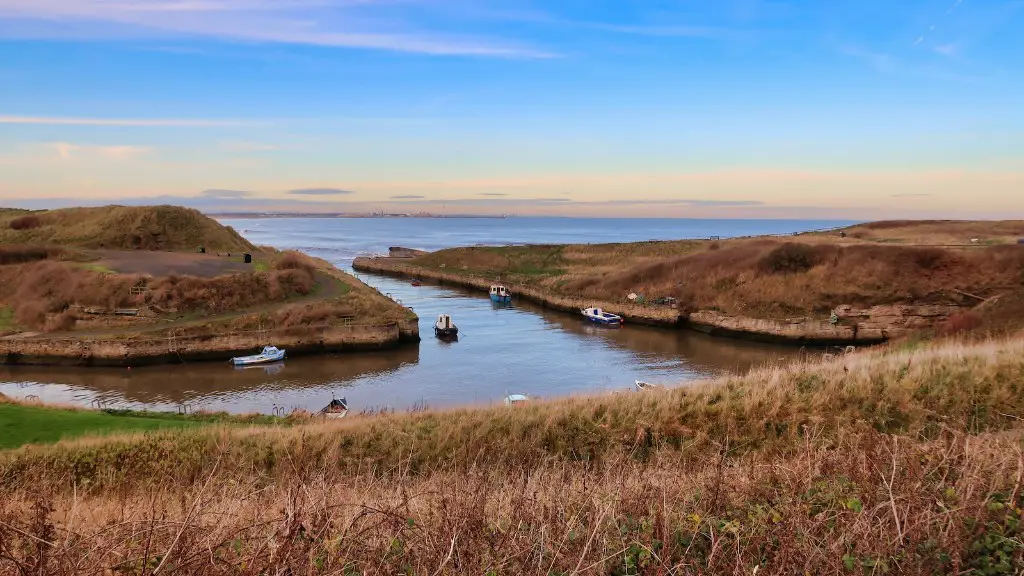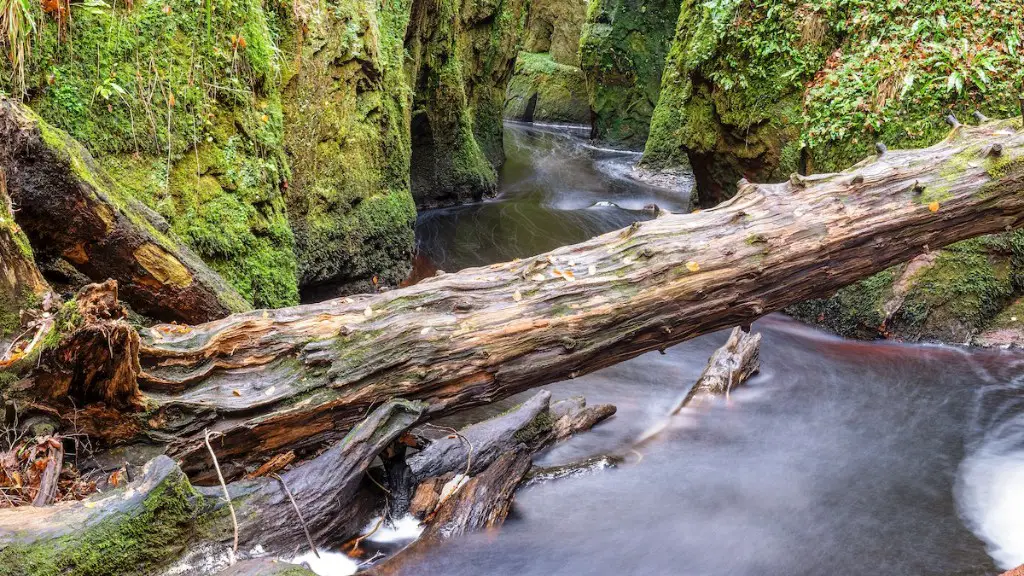Economic Opportunities
The Mississippi River has been an important commercial artery for thousands of years. From the arrival of Europeans to the 1800s, the river was a major trading route. It provided access to new sources of trade and commerce in North America and with cities located hundreds of miles away from the river. By the end of the 18th century, the river was known as the “lifeline of America.” In the 1800s, it was responsible for nearly two-thirds of all of the country’s cotton production and one-half of total exports. The commercial development of the Mississippi River enabled interstate and regional trade, provided access to markets, and enabled people and goods to travel farther than ever before.
The river was also a source of safe and reliable transportation. Throughout the 19th century, the steamboat was one of the most popular forms of transport on the Mississippi. The timing of steamboat arrivals and departures from port towns was very important as communities relied on these ships to deliver goods and move people around. The regular arrival and departure of steamboats helped to shape the practices of the townspeople, including setting meeting times and other public engagements.
The sheer size of the Mississippi created economic opportunities that took advantage of the constant flow of goods and goods. A variety of businesses grew and thrived along the river, including warehouses, shipping companies, and trading posts. The river was also home to dozens of ports of entry, facilitating trade and commerce.
Regional Development
The location of the Mississippi also helped spur regional development. As the river was a major source of transportation, development along the river was essential. Many cities and towns grew up along the shoreline, taking advantage of the river’s natural resources and providing goods and services for those traveling the river. These river towns were home to a variety of businesses, including hotels, shops, and wharfs. By the late 1800s, hundreds of cities and towns dotted the banks of the Mississippi.
The river also provided many communities with an important source of protection. The large expanse of the river was difficult for enemies to cross without being detected. This provided a natural barrier for many towns, helping to protect them from attack.
Social Benefits
In addition to its economic and development benefits, the Mississippi River also had a profound impact on the cultural and social development of many communities. In the late nineteenth century, it became the destination of countless immigrants who used the river to travel to new destinations. The river provided families with an opportunity to chart a new beginning in the United States, providing the resources and transportation they needed to make the journey.
The river was also an important source of recreation. Many towns and cities hosted picnics and excursions along the river. Boat races and other events allowed people to make the most of the river’s beauty.
The Mississippi River provided a way to connect nearby communities with one another, as they could easily travel from one place to another using the river. This allowed for the growth and sharing of ideas and culture.
Environmental Benefits
The importance of the Mississippi River to the environment cannot be overstated. As the largest drainage system in North America, it is home to a variety of plant and animal species. The large, unspoiled river also helps to conserve and protect threatened species.
The river has always been an important source of fresh water for many species. In the late 1800s, the river was an important source of drinking water for many communities. The river’s ecological balance also ensures the health of myriad species of fish, birds, and mammals. Similarly, the river reduces pollutants through natural filtration and dilution, thereby protecting surrounding ecosystems.
Agricultural Benefits
The Mississippi River’s role in the economy of the 1800s extended to agriculture as well. The rich, fertile soil found along the banks of the river enabled a bounty of harvests. The river’s smaller tributaries and streams provided farmers with natural irrigation, allowing them to cultivate and harvest crops on a much larger scale than previously possible.
The river’s importance to the agricultural industry of the 19th century extended to livestock as well. The river provided farmers with an abundant source of forage, allowing them to raise more cattle, hogs, and other livestock.
Trade Benefits
The sheer size and scope of the Mississippi River made it an ideal location for trading and commerce. In the 19th century, the river was home to some of the busiest ports in North America, including St. Louis, New Orleans, and other cities. The river also provided traders with quick access to markets and resources in other US states and Canadian provinces.
The port cities of the Mississippi River played a major role in the development of the domestic and international economy. Firms based out of these cities supplied European traders with goods in exchange for money and manufactured goods. By the end of the 19th century, the Mississippi River had become a major hub for regional and international trade.
Tourism Benefits
The Mississippi River also had a tremendous impact on America’s travel and tourism industry. The 19th century saw a dramatic increase in tourism along the river, as people flocked to its picturesque banks and stunning views. The river provided travelers with a quick and safe way to explore different regions and cities. Travelers were also able to experience the unique cultures of the towns along the river.
River cruises were popular in the 19th century and were key in introducing many parts of America to curious tourists. River cruises allowed tourists to explore the river in comfort, often travelling in luxurious steamboats. The popularity of these cruises continued through the 19th century, becoming a popular form of leisure travel.
Political Benefits
The Mississippi River played a major role in American politics during the 19th century. The river was seen as a major physical hurdles for potential enemies and was used as a strategic asset by US army generals. The Mississippi was strategically important to the nation as it provided a natural military barrier and transportation route.
The river was also important for the government in terms of taxation and revenue. In the 19th century, the government heavily taxed the goods and services travelling on the river. This provided income for government projects and initiatives, helping to fund public works and other civic projects.
Industrial Benefits
The industrial importance of the Mississippi cannot be overlooked. By the first third of the 1800s, the river was home to an array of factories and industrial plants. The river provided a source of power and water for these plants, allowing them to run at full capacity.
The river was also an important part of the steel industry in the late 1800s. Many of the factories and plants along the river used the river to transport fuel and supplies and to dispose of waste materials. The river was also the source of power for many of these plants, and their influence spread along the river and its tributaries.
Wildlife Benefits
The Mississippi River provided a rare glimpse of nature’s beauty during the 19th century. The river was home to a variety of different species of plants and animals, including beavers, deer, and other animals. The river’s importance to wildlife extended to its waters as well. Native fisheries took advantage of the river’s abundance of fish, which were harvested for food and commercial purposes. The river was also a vital source of water for animals and plants alike.
In addition to its practical benefits, the Mississippi River was also a source of inspiration for many people during the 19th century. It was one of the few places where people could find solace, nature, and peace of mind. The river provided a refuge for many as they tried to make sense of the world around them.
Geographical Benefits
Last but not least, the Mississippi River also provided a number of geographical benefits. By the beginning of the 1800s, the river was a major fixture of life in the United States and had been since the earliest days of settlement. This was due in part to its natural geographic features, including its wide expanse and deep channels. Its size and shape provided protection from floods, storms, and other natural disasters.
The geographical importance of the Mississippi River also extended to navigation. The river enabled ships to traverse further and deeper than ever before, allowing them to explore parts of America that were previously inaccessible. This enabled traders and travelers to access markets and resources in distant lands, facilitating not just trade but also cultural exchange.


